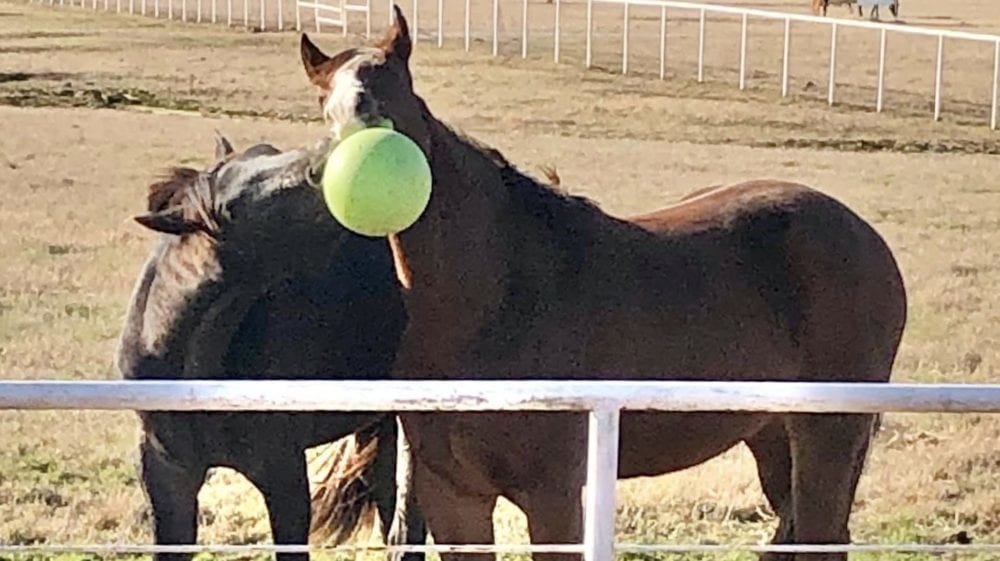Like humans, horses can get overwhelmed with boredom, which may lead to things like weaving, cribbing, pawing, and chewing on wood. As you’re stuck at home without shows to help break up the monotony, we asked for advice from top trainers Gretchen Mathes and John Boxell on keeping these quirks at bay until the world returns to normal.
Turnout time
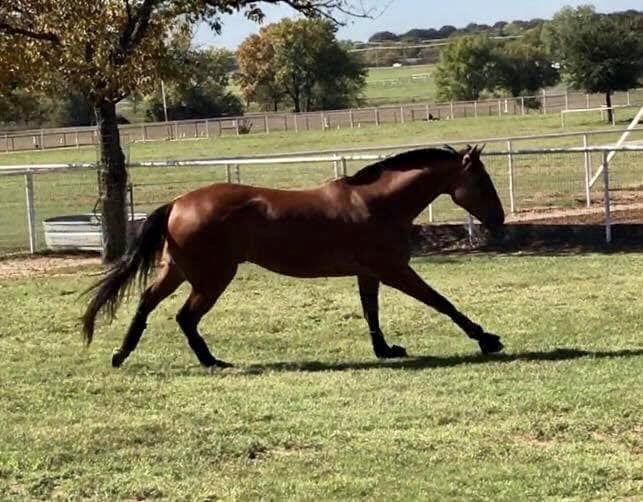 Giving your horse time outside of the stall will reduce boredom because they are meant to move and forage. John Boxell agrees with this, “I’m fortunate at my place as I have ten turnouts available to me, but I do understand that it can be hard to turn out this time of year. But I will turn all of my horses out, even my halter horses.”
Giving your horse time outside of the stall will reduce boredom because they are meant to move and forage. John Boxell agrees with this, “I’m fortunate at my place as I have ten turnouts available to me, but I do understand that it can be hard to turn out this time of year. But I will turn all of my horses out, even my halter horses.”
So while many show horses aren’t ridden, Boxell prefers instead of keeping them stuck indoors, to wrap their legs and let them go. And if you can’t fully turnout, putting your horse on a longe line is an excellent way for more controlled turnout, which is also really beneficial for horses that tend to injure themselves during free turnout.
Keep them busy
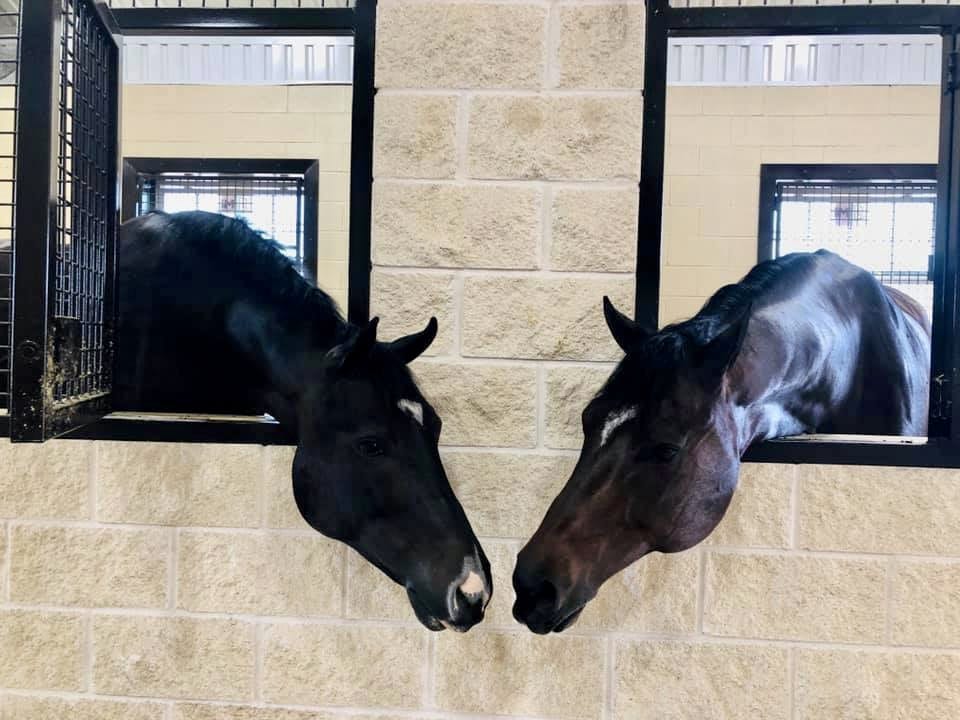 The main reason our show horses learn these habits is that they enjoy riding and working. The same way we go crazy being stuck inside, horses are the same way.
The main reason our show horses learn these habits is that they enjoy riding and working. The same way we go crazy being stuck inside, horses are the same way.
Boxell continues by saying, “If the horse needs it, I like having split doors and opening the top or getting a mesh door guard. It helps them when they can see the activity going on in the rest of the barn.”
Another prominent fix available are stall toys that promote positive energy-burning habits by giving them something that they are meant to play with.
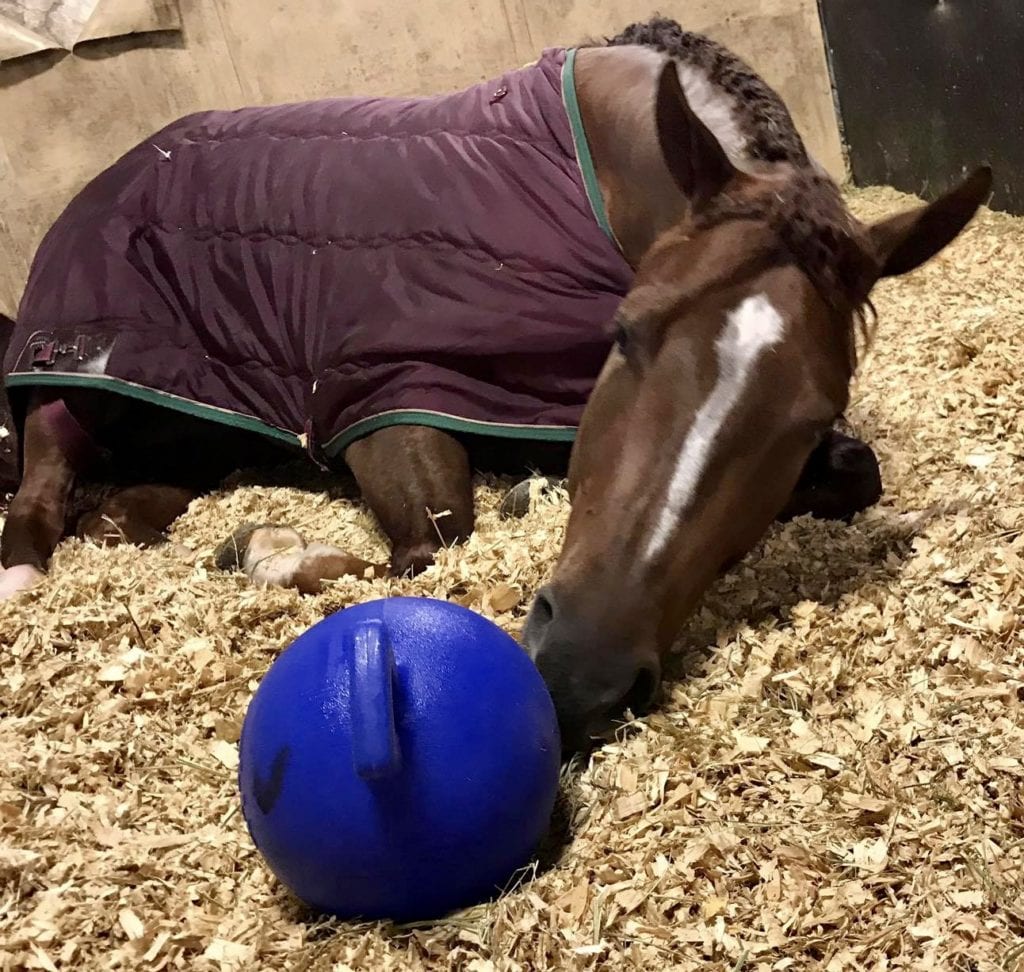
Not only does giving your horse more to look at promote favorable activity, changing up the activities that you put your horse through is a great way to make things less mundane while also potentially burning more energy.
“Adding more stimulus to your horse’s everyday routine is the best way to help prevent boredom,” Boxell expresses. “All of my halter horses are broke out to ride, to give them more to do. With your pleasure horses, start changing leads on them, just do something else besides going in circles all day.”
This is useful information, especially if you feel like your horse is getting burned out with the event currently being focused on.
Catch it early
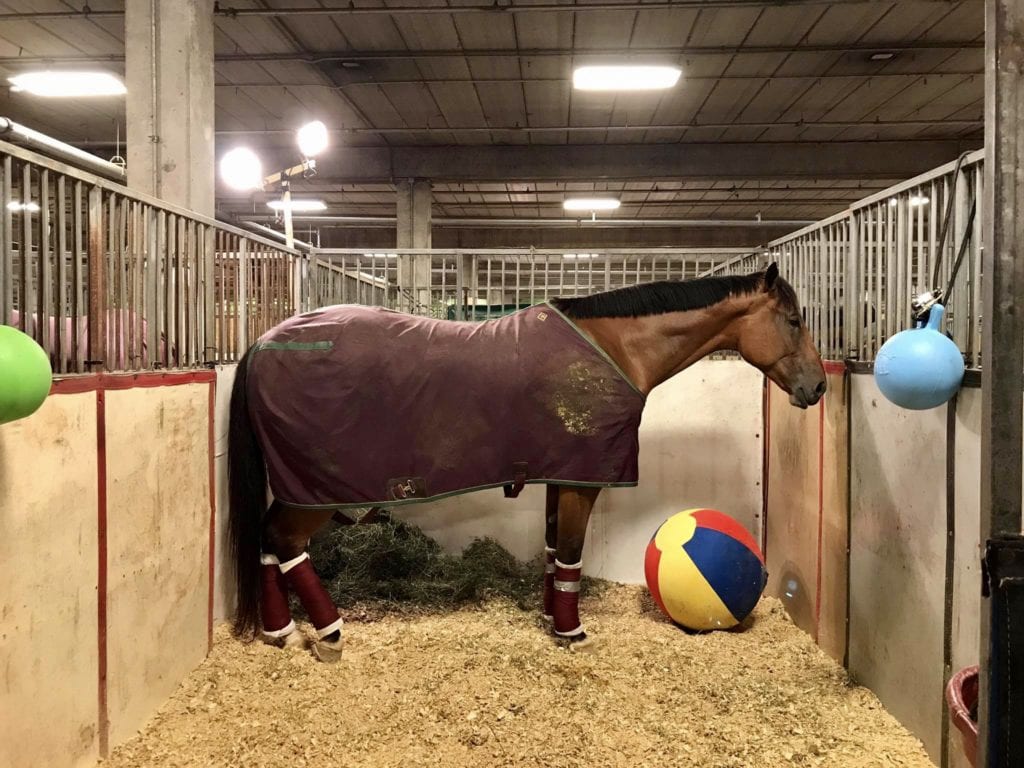
Like any bad habit, stopping it early is a great way to prevent the issue from worsening. Cribbing, for example, can damage teeth, increase the risk of colic, and cause ulcers. “I like to catch it early if I can,” states Gretchen Mathes, “I want to discourage this behavior as much as I can.
A good tip is to find the spot they are cribbing and either put soap or bute paste, depending on the severity. They won’t like the taste, so the hope is that they won’t do it again.” Additionally, hot sauce can be interchanged with the products above.
Teach them patience
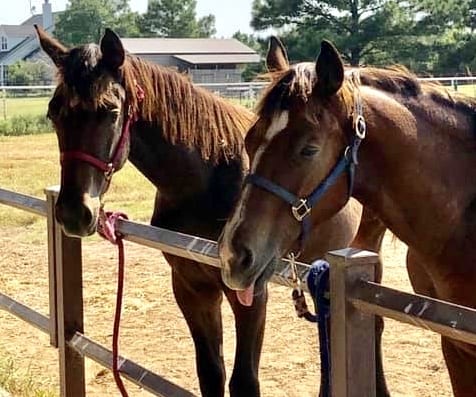
To add to the list of vices that can stem from boredom, pawing is a significant sign that your horse may be unhappy. While pawing can be caused by frustration, excess energy, and isolation, the most significant cause of pawing is impatience.
A way to break your horse of this action, along with some of the tips above, is to utilize patience poles or walls. Tying your horse up to a patience wall can correct multiple issues at once. “If a horse starts showing signs of frustration during feeding time and lack of ground manners, I like to tie them up,” says Mathes. “Getting them used to standing tied for a while allows them to work through the issues themself which does stop a lot of these problems.”
Tying your horse up after a workout also helps break them of the same old routine of just going right back to their stall, and it will also aid in making the effects of the workout linger, making them less likely to show signs of boredom when untied.
Making sure your horse fights off signs of boredom is highly constructive for keeping your horse happy and healthy, in and out of the show pen. Hopefully, these tips guide in the right direction in fighting these symptoms to make you and your horse happier and healthier.


